Nuts and dried fruits are some of the oldest and most traditional superfoods that our mothers and grandmothers have diligently provided for our good health. These nutritional powerhouses, which are high in good fat, proteins, magnesium, iron, vitamin B, and fibre, are a must-have in any diet, according to health experts.
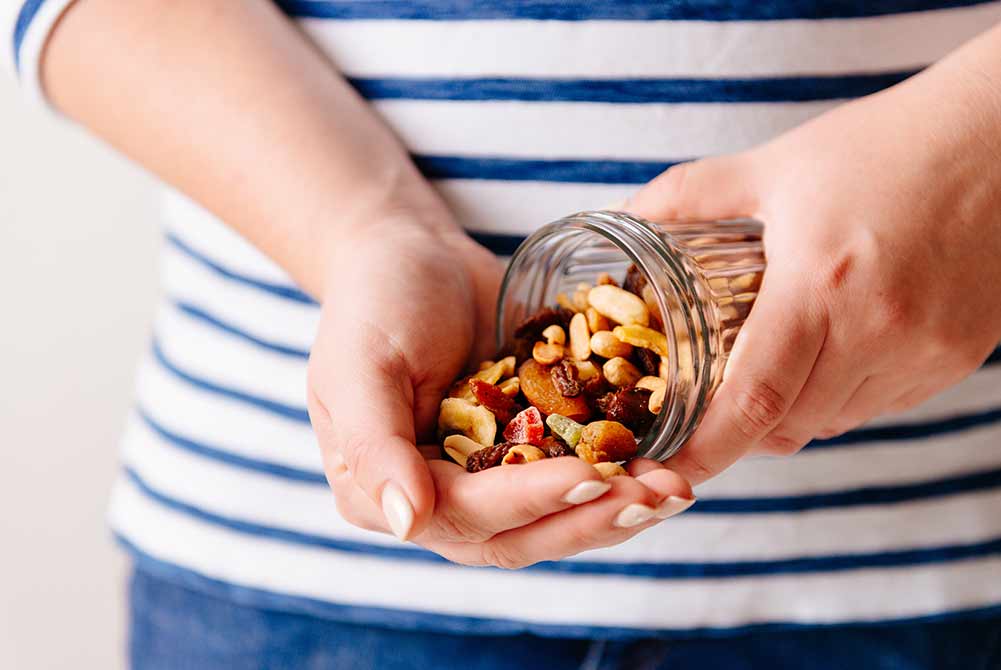
They are popular as a delicacy, but because of their incredible health benefits, they have become a must-have! Even children who normally reject fresh fruits enjoy them. Adding a variety of dry fruits to delicious yoghurt, smoothies, and other healthy food options makes breakfast choices a breeze.
What's more incredible is that they're free of processed sugar, high cholesterol, and sodium. We've put together a fantastic list of dried fruit names that are jam-packed with nutrients. They are certain to improve your general health.
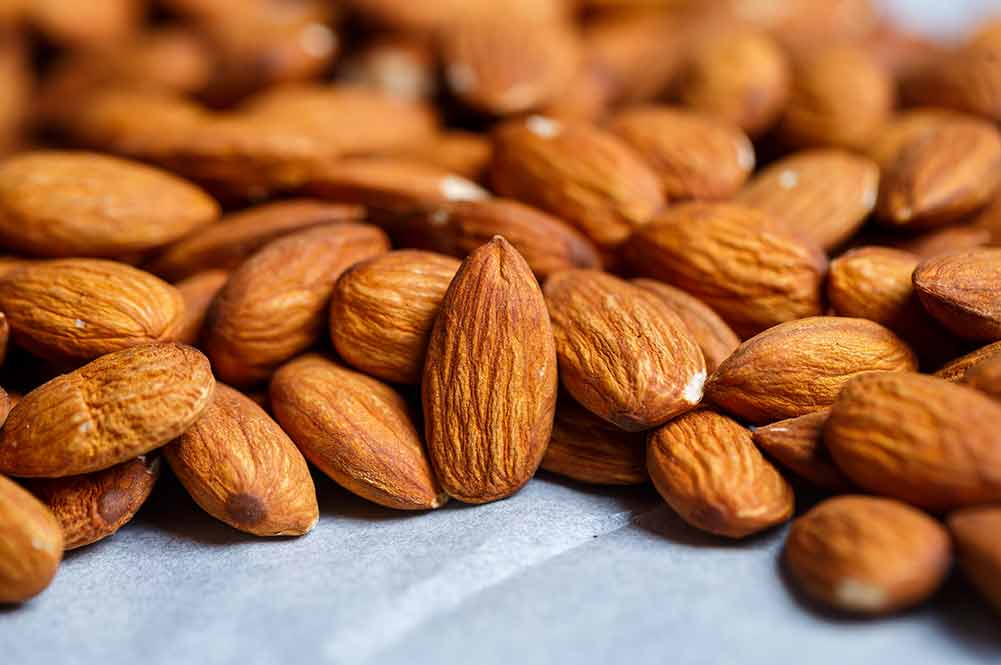
1. Almonds
Almonds are one of the most popular dried fruits in the world. They have significant health benefits for people of all ages. It's possible to eat them raw, soaking, or roasted.
Benefits:
- Treat heart diseases
- Manages blood sugar level
- Helps with weight management
One serving (28g) of almonds contains:
Protein 6g
Fibre 4g
Plus Vitamin E (35% of Daily Value)
Magnesium (20% of Daily Value)
Calcium (8% of Daily Value)
Almonds are a good substitute for cashew nuts when it comes to creating Indian curries. Both of these ingredients can be used interchangeably because the taste and richness of both pastes are practically identical.
Almonds can be used as a garnish for a variety of sweet foods. Pulaos and Biryanis can also be made using slivered almonds. Almond powder, like cashew powder, can be used in a variety of milkshakes, including Badam Milk.
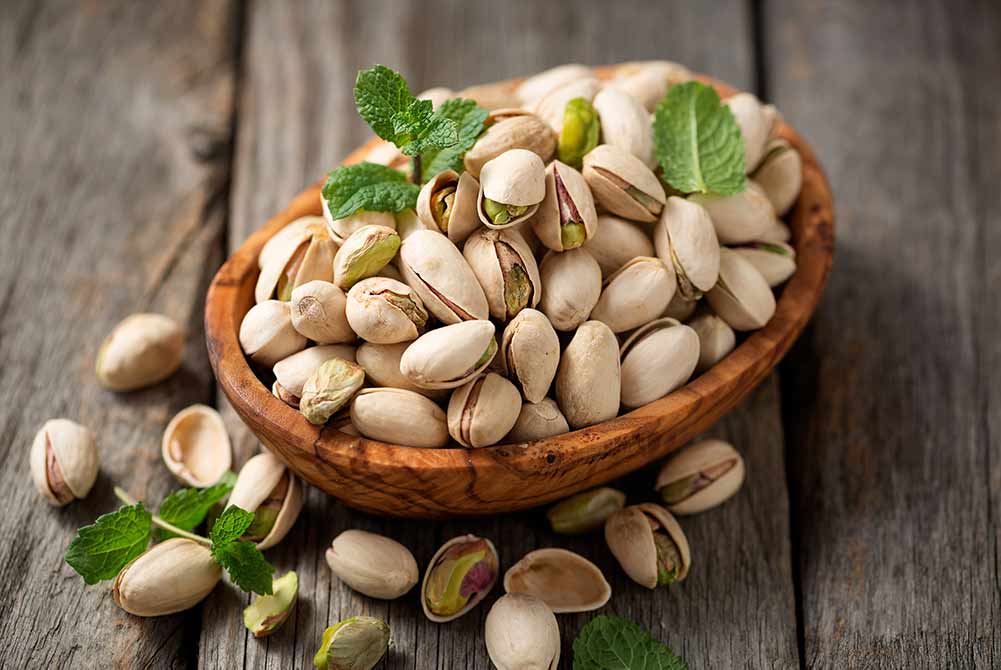
2. Pistachios
This sweet and unusual dried fruit is commonly eaten as a snack. In the world of dry fruits, Pista is a well-known name. It contains more than 30 minerals, vitamins, and phytonutrients.
Benefits:
- Good for the heart
- Manages diabetes
- Improves the production of haemoglobin and blood circulation
One serving (28g) of pistachios contains:
Protein 5.72g
Carbs 7.7g
Fibre 3g
159 calories
Fat 12.85g
Pistachio-flavoured milkshakes and other refreshing drinks can be made with a dry powder made from roasted nuts. Slivered Pistachios can be used to decorate sweet dishes like Kheer, Payasam, and Mithais. Pistachios, diced, can also be used in dry fruit-based recipes like cakes, muffins, and halwas.
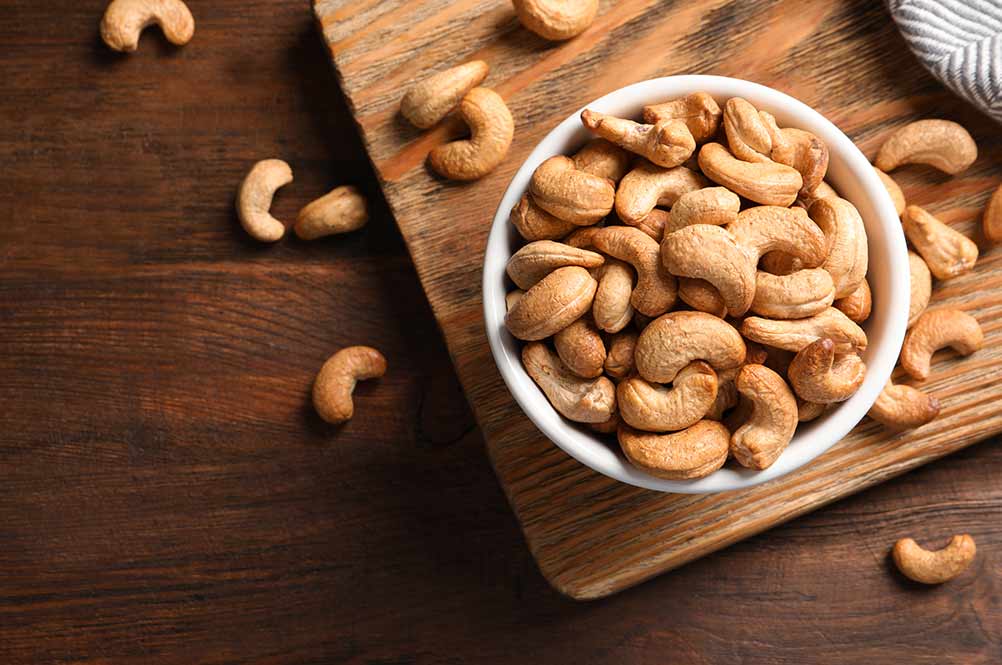
3. Cashew
Although cashews are commonly mistaken for nuts, they are actually seeds. These seeds have the potential to significantly improve your overall health.
Benefits:
- Helps with weight loss
- Controls blood sugar levels
- Improves heart health
One serving (28g) of cashews contains:
157 calories
Protein 5g
Fat 12g
Copper (67% of Daily Value)
Fibre 1g
Carbs 9g
Iron (11% of Daily Value)
Indian curries don't have the same creamy smoothness without the cashew nut paste. Chivda and Dry Fruit Farsan are two savoury appetisers that go nicely with these nuts. You can either use them whole or chopped in sweet dishes. You may also lightly roast them to bring forth extra tastes.
Another option to incorporate cashews into milkshakes and cakes is to use cashew nut powder.
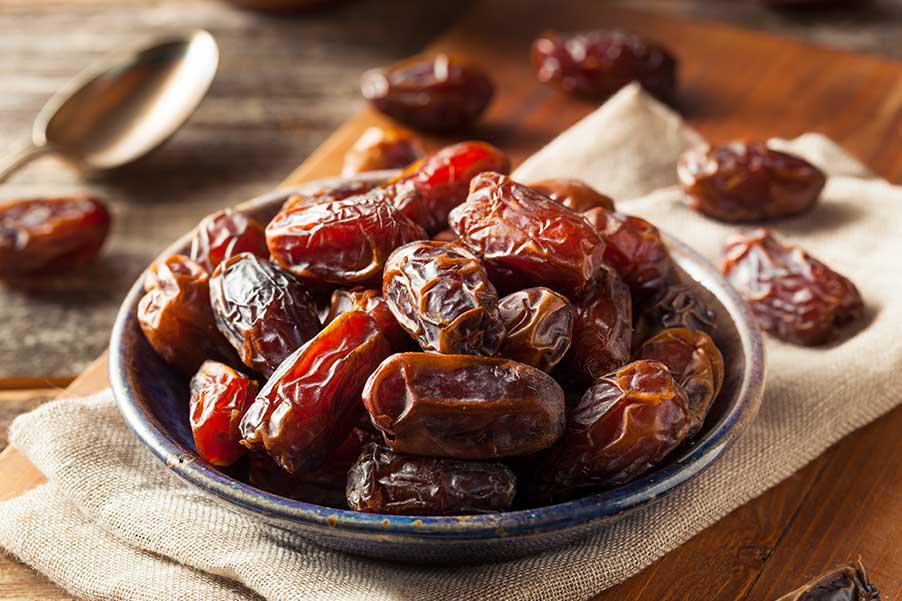
4. Dates
This iron-rich, super-delicious dry fruit is ideal for the winter months. Dates are a nutrient-dense fruit that may be enjoyed in a variety of ways. You can eat them plain or mix them into your dessert. Dates, both seeded and deseeded, are readily available in the market.
Benefits:
- Proven to promote brain health
- Helps manage sugar levels in the body
One serving (28g) of dates contains:
Fibre 0.6g
Protein 0.2g
20 calories
Sodium 0.14mg
Carbohydrates 5.3 g
Unlike the majority of the other dry fruits on our list, we prefer dates for their sweet flavour above their richness or texture. Its distinct flavour makes it a good choice for a variety of Indian recipes. You may create Sheer Kurma at home with it. It enhances the flavour of this traditional sweet dish. In addition, dates can be used to make halwas, laddus, and khajur barfis.
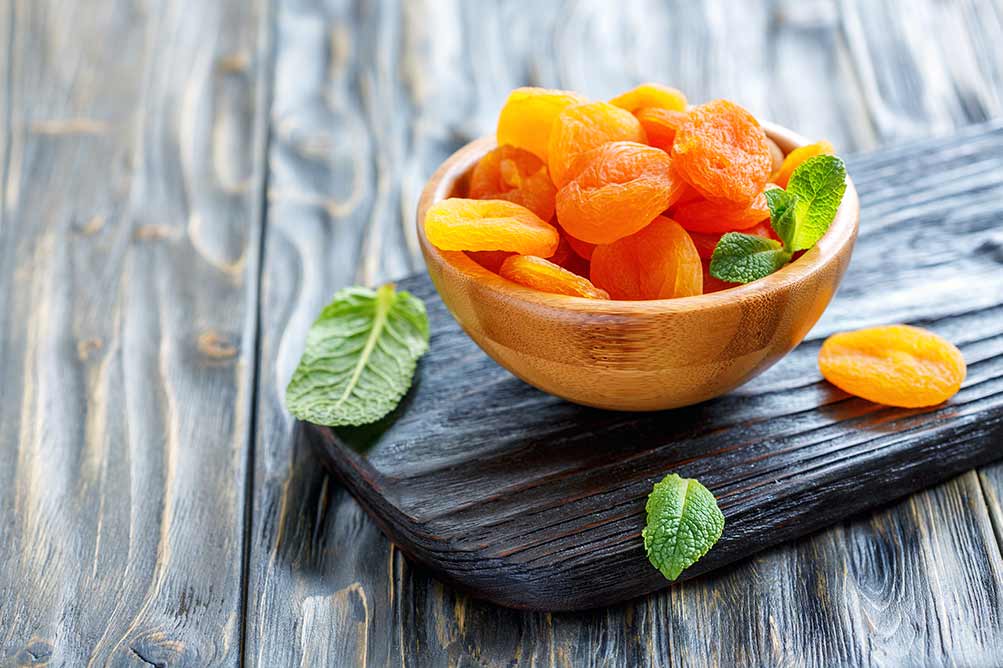
5. Apricots
Apricots are tiny, orange-coloured fruits with a sour flavour that are high in vitamins and minerals.
Benefits:
- Protects your heart and eyes.
- Hydrates skin and reduces wrinkles
One serving (28g) of apricots includes:
Energy 16.8 calories
Proteins 0.49g
Fat 0.14g
Fiber 0.7g
Carbohydrates 3.89g
Beta-Carotene 383 mcg
Vitamin A 33.6 mcg
In Hyderabad, India, Khubani ka Meetha is a popular dish. The soaked apricots can be used to make this delicacy.
You can use it to make various types of Halwas in addition to this Hyderabadi delicacy. Soaked apricots are also delicious in Kheer. This dry fruit can be used to produce savoury meals such as Apricot Chicken Curry, Biryanis, and Chutney.
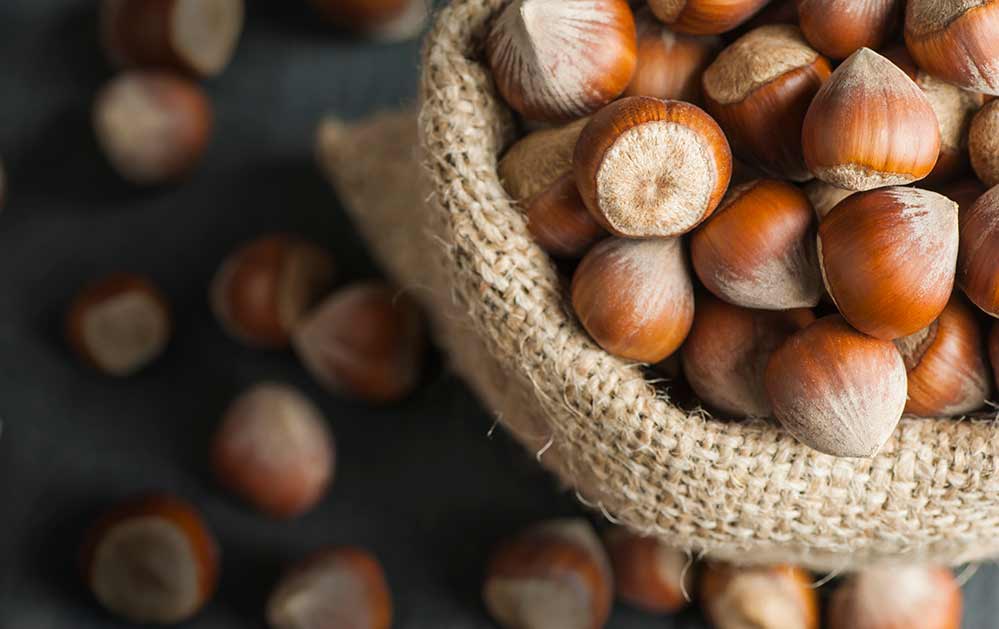
6. Hazelnuts
How could we possibly leave Hazelnuts out of our list of dry fruit names? Hazelnuts are a type of nut that comes from the Corylus tree and are high in proteins, lipids, vitamins, and minerals. Raw, roasted, or mashed into a paste, this sweet-flavoured nut is popular. They can also be used to make Nutella-like chocolate items. What a range of abilities!
Benefits:
- Improves heart health
- Helps with healthy bowel movements
One serving (28g) of hazelnuts includes:
Fat 17g
Protein 4.2g
Fibre 2.7g
Carbs 4.7g
176 calories
Vitamin E (21% of Daily Value)
Copper (24% of Daily Value)
Magnesium (12% of Daily Value)
Manganese (87% of Daily Value)
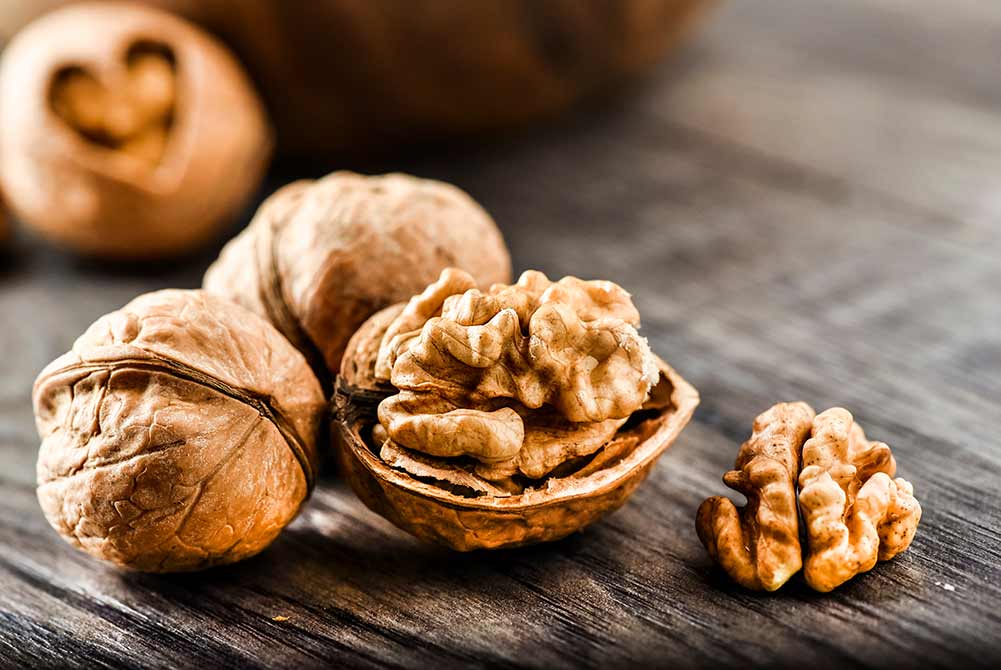
7. Walnuts
This single-seeded stone fruit with healthy fats, protein, and fibre is shaped like a brain. They are usually eaten raw after removing the shell, but they can also be added to salads, breakfast cereals, baked goods, and pasta.
Benefits:
- Reduces the risk of cancer and heart diseases
- Helps manage the risk of diabetes
One serving (28g) of walnuts contains:
Protein 4.3g
185 calories
Carbs 3.9g
Fibre 1.9g
Fat 18.5g
Sugar 0.7g
People have been eating this nut more in recent decades as the popularity of cakes and other baked goods have grown.
These nuts can also be used to produce walnut barfis, walnut sheera, and walnut chutney.
In Conclusion
Now that you're aware of the various health benefits of these dry fruits, it isn't too late to add them to your diet.
FAQs
Q. When is it better to eat dried fruits?
A. Dry fruits are suitable for consumption at any time of the day. However, studies have shown that eating them first thing in the morning is more advantageous.
Q. Can we consume dry fruits daily?
A. Yes, dry fruits can be consumed on a daily basis. It's crucial to remember, however, that they are high-calorie items. As a result, they should be eaten in moderation.